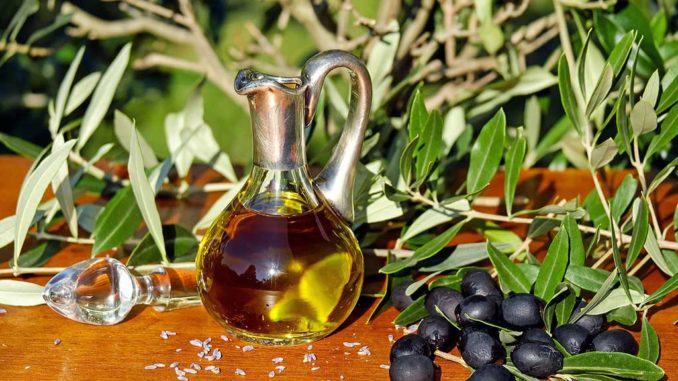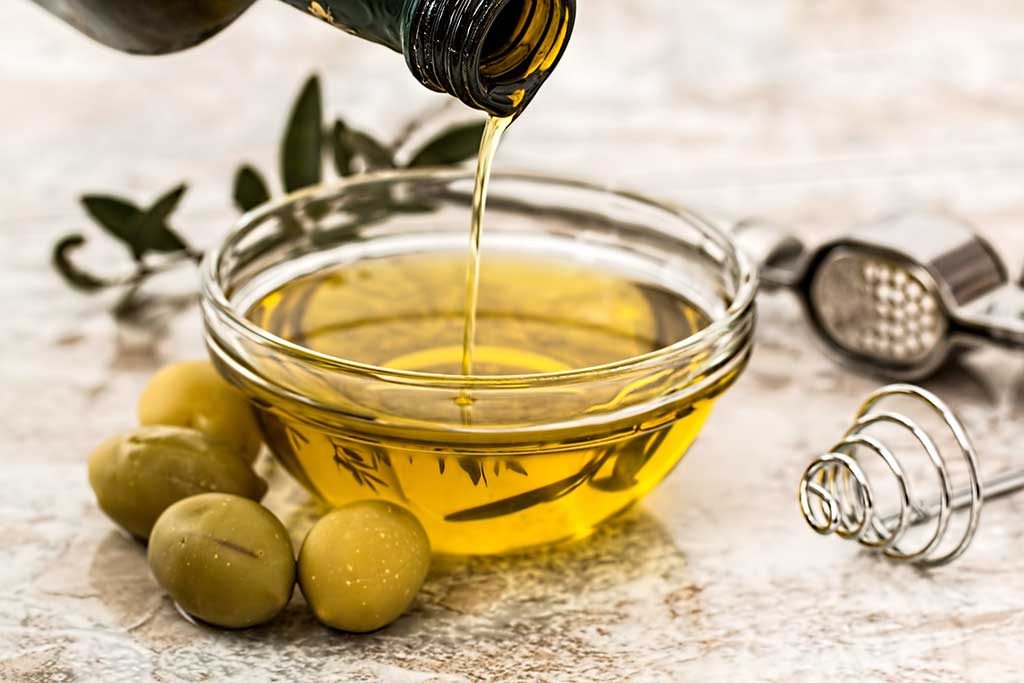Olive oil – universal health protector
The value of olive oil is widely known for centuries, but not until the last decade has been scientifically validated. It is rich in essential substances, which is ranked in the top ten of the healthiest foods. Olive oil has the greatest impact on the health of the heart and blood vessels.
It has anti-inflammatory properties and ability to strengthen the immune system. This fluid protects from chronic degenerative diseases, such as atherosclerosis, arthritis, diabetes, asthma. Maintains healthy bones and joints, helps with stomach ulcers, increased gastric acid secretion, and digestion problems. In recent years, olive oil has been increasingly linked with a reduced risk of developing cancers.
Olive oil nutrients
Olive oil is rich in vitamins A, E, D and K. Vitamin A is a powerful antioxidant and a great help in boosting immunity and has an extremely beneficial effect on eye health and sight preservation. Vitamin D helps in the prevention and treatment of many diseases such as diabetes, asthma, psoriasis, autoimmune diseases and muscular and renal diseases. Relieves depression, strengthens the immune system, helps prevent colds and flu and takes care of the health of teeth and bones. Thanks to the powerful antioxidant, vitamin E, olive oil is classified as a guardian of the cardiovascular system. Vitamin K present in this oil has a positive influence on blood clotting and is of great benefit in the prevention of heart disease and in a building of tissue and bone.
Olive oil is rich in chlorophyll, lecithin, carotene, polyphenol. Lecithin is particularly known as a protector of bones and heart, has a positive effect on blood circulation, memory and concentration.
Thanks to the abundance of monounsaturated acids, olive oil protects HDL cholesterol (good cholesterol) and reduces bad cholesterol (LDL), which represents a threat to the health of the blood vessels. These compounds are responsible for the health of the brain, for a preservation of brain activity, and help to maintain the process of thinking and memory.
High levels of antioxidants contained in olive oil counteract the negative effects of free radicals, great enemies of health.
Olive oil is considered an excellent natural patron of the harmful effects of solar radiation, contributes to creating a beautiful bronze color during sunbathing, and also helps in the treatment of sunburn.

Types of olive oil and a method of preparing
The fleshy fruits are full of olive oil. The seeds contain oil also, but it is of inferior quality. The method of obtaining this precious liquid consists of completely grinding ripe fruits, and then molding them for the purpose of the extraction. Cold pressing is the best and cleanest way of processing olives.
With pressing the olives of the highest quality is obtained oil called extra virgin olive oil which is the highest quality. It features a dark green color and mild smell and taste. It is particularly appreciated for the ideal ratio of fatty acids and the ratio of health beneficial substances. Virgin olive oil is obtained in a similar way as extra virgin, but of lower quality fruit. Recent studies have compared the anti-inflammatory value extra virgin olive oil with anti-inflammatory values virgin olive oil. It turned out that the extra virgin olive oil has the ability to reduce inflammatory markers in cases where virgin did not have the same effects. This discovery is associated with the highest concentration of phytonutrients (especially polyphenols) in the composition of extra virgin olive oil, which the powerful anti-inflammatory properties has long been scientifically confirmed.
However, when talking about the quality of olive oil, it is necessary to point out that it depends on many factors, from the olive variety of ways to harvest, storage and processing methods.
Related: Kefir The Miraculous Probiotic Milk-Health Benefits And Recipes

